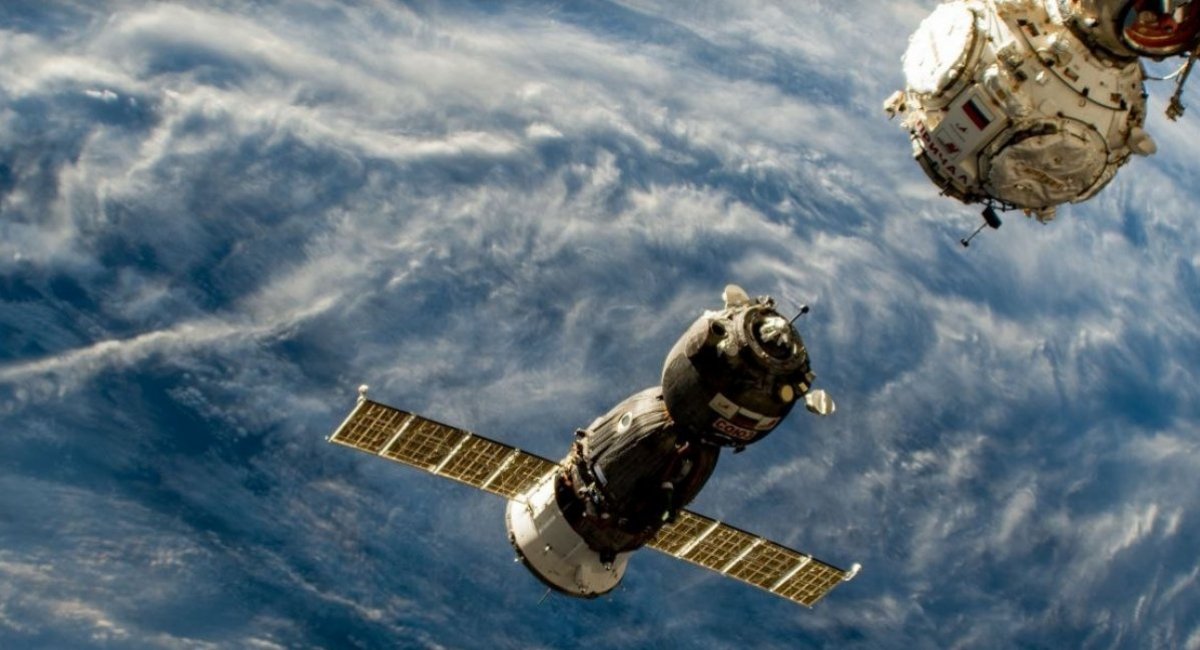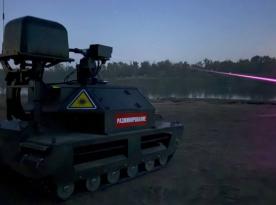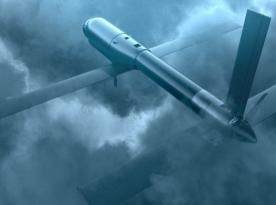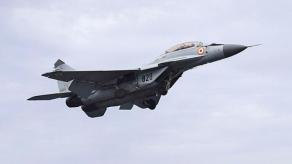Rather unexpectedly, an important russian industrialist has decided to expose the real state of affairs in the russian science-intensive industry, particularly in spacecraft building. It came from Igor Maltsev, the chairman of RKK Energiya PJSC, the main manufacturer of rocket and space technology in russia.
This company is responsible for the Soyuz and Progress rockets and spacecraft, for ensuring the operation of the russian segment of the ISS, for development and launches of satellites, etc. As a litmus paper, the rocket and space industry is also a very good marker of the real state of development of a country's military-industrial complex in general.
What was supposed to be a congratulatory post dedicated to Energiya's 79th anniversary on an intranet website somehow leaked to the russian media and was put on public display. The resonance stirred by the publication even made pro-Kremlin media write news about it.
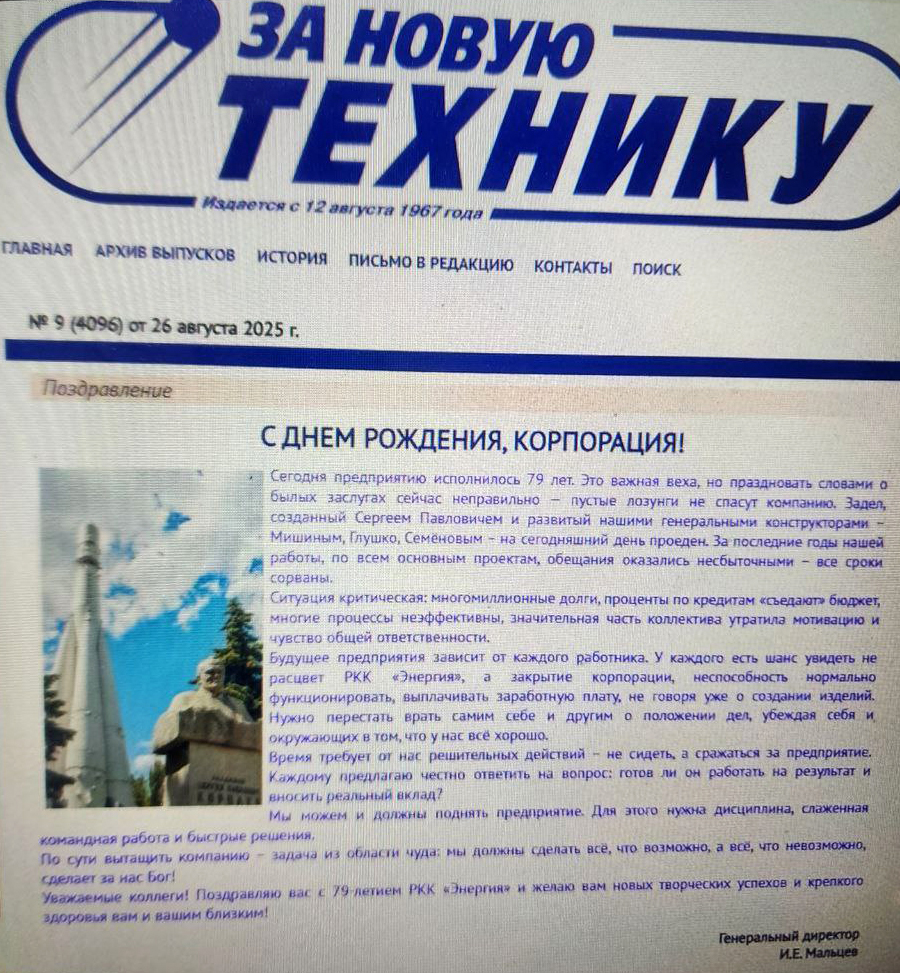
"The foundation laid by Sergei Pavlovich [Korolev] and developed by our chief design officers Mishin, Glushko, Semenov has been eroded away by now. Over the past years of our work, in all major projects, the promises turned out to be unrealistic, all deadlines have been broken. The situation is critical: multimillion-dollar debts, interest on loans 'eat up' the budget, many processes are ineffective, a significant part of the team has lost motivation and a sense of general responsibility," the celebratory post says.
Of course, such a situation did not appear suddenly and out of nowhere, but it had been kept under wraps. So, now, Maltsev writes, "we need to stop lying to ourselves and others about the state of affairs, convincing ourselves and those around us that everything is fine in here." If nothing is done to fix this, the main manufacturer of russian space technology could cease to exist, he added.
From here onwards, on behalf of Defense Express, we should note that these "congratulations" from the RKK Energiya leadership were intended to motivate the team, with an emphasis on "decisive actions," "effort for results," "teamwork," and all that further down the text. But the intro directly indicates the real depth of the pit that the russian space industry currently finds itself in.
Interesting here is not only the fact of such a confession from the enterprise management, but also how Moscow is trying to explain this leak. Saying it was a hacker attack would convince no one in this context, since it was posted on the closed-access corporate website of the RKK Energiya, not on the public one or on social media. To top it off, the anniversary was celebrated on August 26, and the "confession" went viral today, August 27.
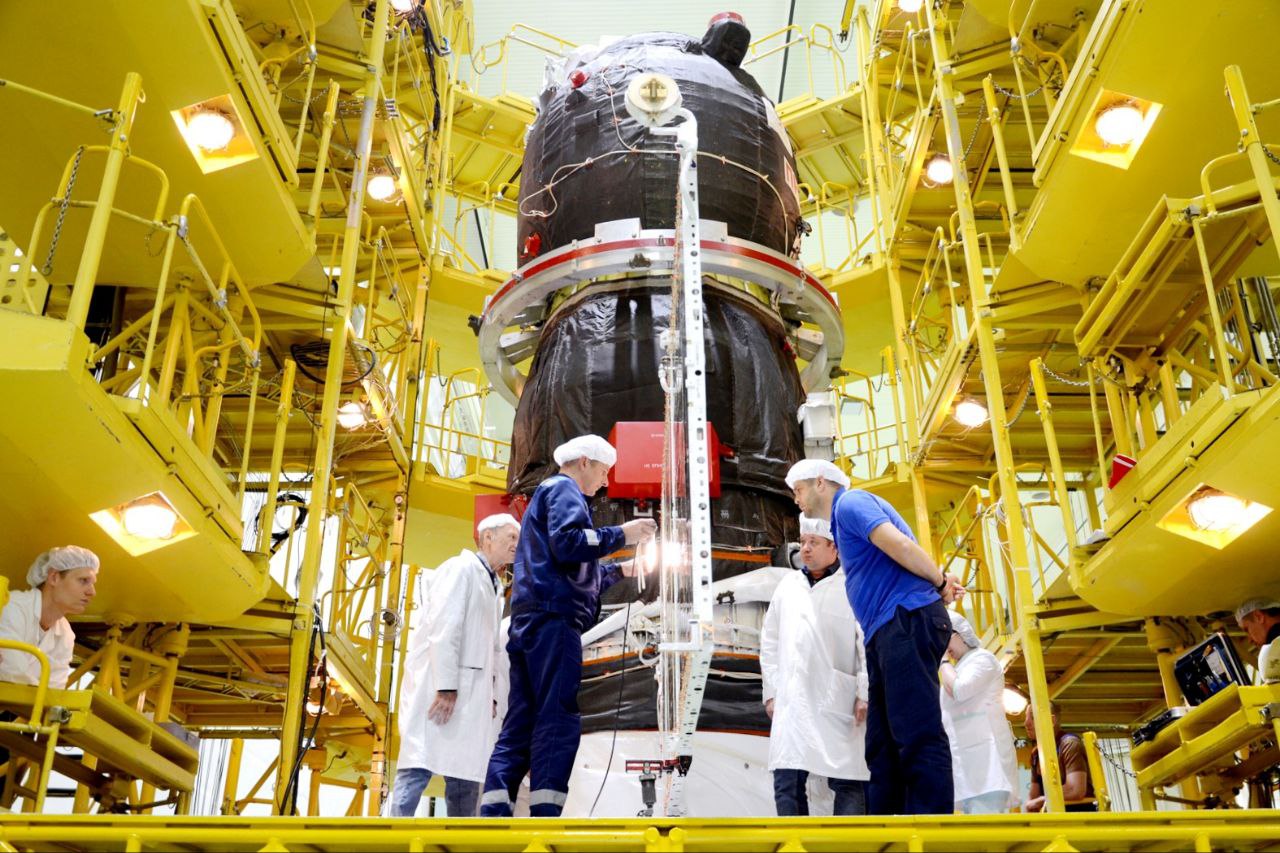
The state of russian cosmonautics, one of the pillars of russian propaganda mythos of importance and strength, has long been a problem for the Kremlin. Because the myth was successfully created, but it lacked substance to back it up: no breakthrough successes nor any productive results in the domain for a very long time. The russian federation grasping at straws, created back in the USSR, for all these 34 years has been on full display since day one.
So has been the fact that all russian overhyped projects have long been overdue, abandoned, or failed. Such as the new Angara launch vehicle; or the new manned spacecraft meant to replace the 1960's Soyuz but in fact progressing no further than constantly changing names; or the orbital station existing only as a scale model; or that plan they had in 2014 to build an operating base on the Moon.
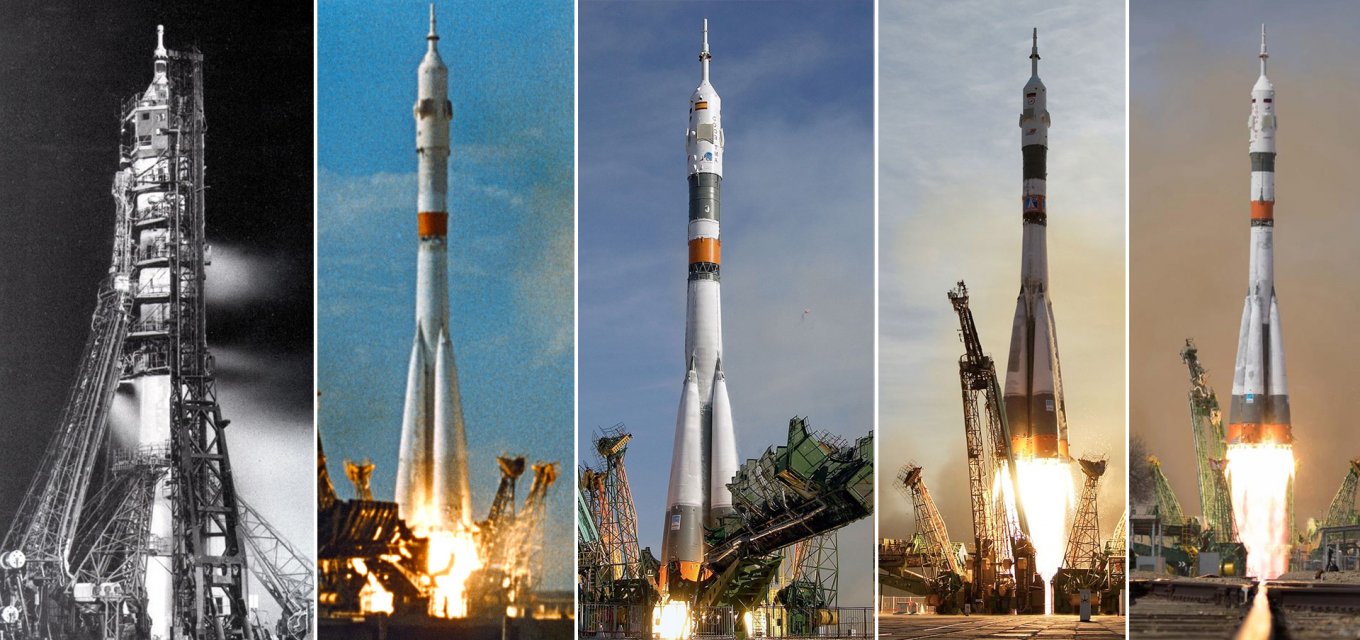
The last ambitious project of Roscosmos was to at least repeat the Soviet Union's achievement and land the Luna-25 automatic station on the Moon. For a brief reminder, it was originally achieved with the Luna-9 back in 1966. However, on August 19, 2023, the newest Luna-25 crashed into the satellite's surface, putting an end to the project that had lasted since 1997.
Read more: "Controls Inside russia's Oreshnik Were Made By NPTsAP, Infamous For Crashing Luna-25 Into Moon in 2023"
In the end, the russian federation lost the Moon Race to India, after the latter successfully landed Chandrayaan-3 on August 23, 2023. To this day, russia cannot replicate what made the USSR successful and has never been to the Moon.
Once in 2020, Defense Express wrote a deep dive into the prerequisites, reasons, and implications of the sunset of russian cosmonautics for our Ukrainian-speaking audience. At that point in time, it was already clear as day that russia's space program was crossing the event horizon and turned into nothing but a shadow of the USSR's former glory, basking in self-reassurance that "at least we were the pioneers."
Read more: Ukraine May Launch Its Own Space Forces, Developing Satellite and Missile Solutions



